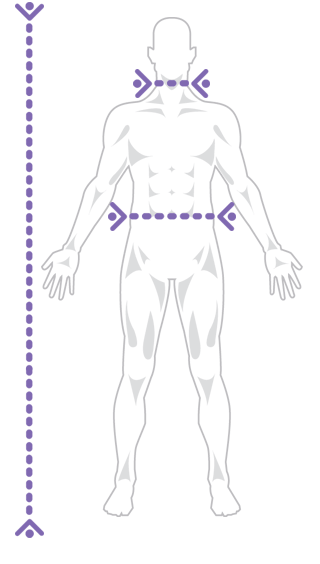Body fat calculation is a crucial aspect of assessing an individual's overall health and fitness. Various methods exist to estimate body fat percentage, each with its own advantages and limitations. One such method is the Army Vogel Method, a formula developed by the U.S. Army that provides a simple yet effective way to estimate body fat percentage. In this article, we'll delve into the details of the Army Vogel Method, how it works, and its significance in health and fitness assessments.

Body Fat (Fitness)
> 25.0 Obese
18.0-25.0 Average
14.0-18.0 Fitness
6.0-14.0 Athletes
< 6.0 Essential fat
Understanding Body Fat Percentage
Body fat percentage is the proportion of fat mass to total body mass. It is a more accurate indicator of fitness and health than body weight alone. While some level of body fat is essential for normal physiological functioning, excessive body fat can lead to various health issues, including cardiovascular diseases, diabetes, and other obesity-related conditions.
The Army Vogel Method
The Army Vogel Method is named after its creator, Dr. Robert A. Vogel, who developed the formula for estimating body fat percentage. This method is commonly used by the military to assess the fitness levels of personnel. The formula for males takes into account the circumference of the waist and neck, along with height, to estimate body fat percentage. For Females, height, neck, wrist, forearm and hip measurements are used in addition to also including weight.
Limitations and Considerations
While the Army Vogel Method is a convenient tool for estimating body fat percentage, it has some limitations. Individual variations, such as muscle distribution and body composition, can affect the accuracy of the results. Additionally, the method may not be suitable for certain populations, such as athletes with highly developed musculature.
| Based On | Weight | Tape Measure | Skinfold |
| Measurement Complexity | Very Easy | Easy | Difficult |
| Accuracy/Precision | Low | Medium | High |
| Best Suited For | Non-Active Person | Active Enthusiast | Athlete |
Neck | ||||||||||||||||||||||||||||||||||||||||||||||||||||||||||||||||||||||||||||||||||||||||||||||||||||
| 17.5" 1.5" | 16.75" 0.75" | 16.25" 0.25" | 16.0" | 15.75" -0.25" | 15.25" -0.75" | 14.5" -1.5" | ||||||||||||||||||||||||||||||||||||||||||||||||||||||||||||||||||||||||||||||||||||||||||||||
A b d o m e n | 29.0" -3.0" | 4.02 Essential fat | 7.45 Athletes | 8.73 Athletes | 11.72 Athletes | |||||||||||||||||||||||||||||||||||||||||||||||||||||||||||||||||||||||||||||||||||||||||||||||
| 30.2" -1.8" | 7.32 Athletes | 10.44 Athletes | 11.61 Athletes | 14.36 Fitness | ||||||||||||||||||||||||||||||||||||||||||||||||||||||||||||||||||||||||||||||||||||||||||||||||
| 31.1" -0.9" | 9.59 Athletes | 12.51 Athletes | 13.61 Athletes | 16.21 Fitness | ||||||||||||||||||||||||||||||||||||||||||||||||||||||||||||||||||||||||||||||||||||||||||||||||
| 31.7" -0.3" | 11.03 Athletes | 13.83 Athletes | 14.89 Fitness | 17.39 Fitness | ||||||||||||||||||||||||||||||||||||||||||||||||||||||||||||||||||||||||||||||||||||||||||||||||
| 32.0" | 11.72 Athletes | 14.47 Fitness | 15.51 Fitness | 17.97 Fitness | ||||||||||||||||||||||||||||||||||||||||||||||||||||||||||||||||||||||||||||||||||||||||||||||||
| 32.3" 0.3" | 12.4 Athletes | 15.1 Fitness | 16.11 Fitness | 18.53 Average | ||||||||||||||||||||||||||||||||||||||||||||||||||||||||||||||||||||||||||||||||||||||||||||||||
| 32.9" 0.9" | 13.72 Athletes | 16.31 Fitness | 17.3 Fitness | 19.63 Average | ||||||||||||||||||||||||||||||||||||||||||||||||||||||||||||||||||||||||||||||||||||||||||||||||
| 33.8" 1.8" | 15.61 Fitness | 18.06 Average | 19.0 Average | 21.22 Average | ||||||||||||||||||||||||||||||||||||||||||||||||||||||||||||||||||||||||||||||||||||||||||||||||
| 35.0" 3.0" | 17.97 Fitness | 20.26 Average | 21.14 Average | 23.23 Average | ||||||||||||||||||||||||||||||||||||||||||||||||||||||||||||||||||||||||||||||||||||||||||||||||
Conclusion
The Army Vogel Method offers a straightforward and practical approach to estimating body fat percentage. Though not without its limitations, it provides a useful tool for individuals and professionals alike to assess overall health and fitness. It's essential to remember that no single method is perfect, and combining various assessment tools can provide a more comprehensive understanding of an individual's body composition. Always consult with fitness and healthcare professionals for a thorough analysis and guidance tailored to your specific needs and goals.
Measurement Help
Neck
How to measure- Smallest measurement just below the adams apple
- Tape measure should be sloping slightly downwards
Abdomen
Body Position- Same setup as waist measurement
- Specific location right at your naval (not above or below)
https://apps.dtic.mil/sti/citations/ADA197706


